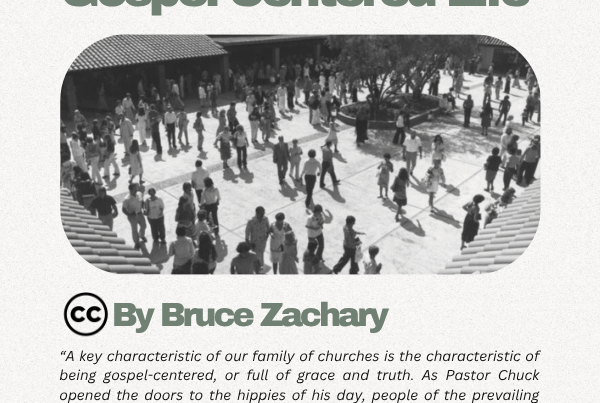
In a recent episode of “Things That Matter,” Josh Turansky and I discussed the role of women in the ministry. I want to come back to the subject here briefly and give a bit more clarification on the biblical texts that most would cite as prohibiting women from teaching a mixed congregation of men and women.
The two texts from which some have drawn the conclusion that women cannot teach in the church, meaning, they cannot give biblical instruction when both men and women are present in an assembly, are found in 1 Corinthians 14:34-35 and 1 Timothy 2:11-15. We’ll take a look at them in order.
Let your women keep silent in the churches, for they are not permitted to speak; but they are to be submissive, as the law also says. And if they want to learn something, let them ask their own husbands at home; for it is shameful for a woman to speak in church.
1 Corinthians 14:34-35
The first thing to remember when studying the Bible is that Scripture does not contradict itself.
Paul has already acknowledged (without disapproval) women praying and prophesying (speaking God’s Word) in the Corinthian fellowship (see 1 Corinthians 11:5). That has to be kept in mind when we try to understand his instructions in chapter 14.
Most Bible teachers agree that Paul is dealing with a specific issue in the Corinthian church where certain women were disrupting the service with questions. I think that is a reasonable assumption. We need to keep in mind that these instructions had a context. Sometimes we know it; but more often than not, we don’t. However, even if we don’t know the context, we must remember that there was one and we need, to some degree, to try to understand what that was.
The historical context for the passage is that certain women, which obviously should be translated wives in this case (the Greek word for women and wives is the same), were disrupting the services with their questions and their husbands were passively allowing this bad behavior to go unchecked. Paul rebukes them and tells them to discuss these matters with their wives at home. When he says, “for it is shameful for women to speak in church,” he clearly means speaking out disruptively. So, he’s not forbidding women to speak in the assembly, he’s forbidding them to speak out in a disruptive manner. Only those who disregard the context and take an extreme view are going to conclude from what Paul said here that all women are to always be silent in the church. Unfortunately, some have held and enforced that view.
Here’s the other passage:
Let a woman learn in silence with all submission. And I do not permit a woman to teach or to have authority over a man, but to be in silence. For Adam was formed first, then Eve. And Adam was not deceived, but the woman being deceived, fell into transgression. Nevertheless she will be saved in childbearing if they continue in faith, love, and holiness, with self-control. 1 Timothy 2:11-15
Once again we need to ask, what is the context of this passage?
What was going on in the background that led to Paul’s instruction here? I don’t know for sure, but looking at the passage in its entire context, this is what I see.
First of all, it could very well be that “wife” is the better translation here as well. The whole context here seems to be wives. There’s the issue of submission, which is a husband and wife issue rather than a man and woman issue. (The Bible does not command women in general to be submissive to men.) There is the reference to Adam and Eve, not merely man and woman, but husband and wife. Then there is the reference to childbearing, or childrearing, which again speaks of married women.
Here’s the possible scenario that Paul was addressing: Certain un-submissive wives, rather than tending to the business of childrearing (taking care of life at home) were trying to take over the leadership of the church. Teaching and exercising authority over a man is exactly what the overseers of the church are to do. These women were trying to seize the role of leadership over the church. This makes sense in the larger context because after giving this instruction, Paul immediately goes on to clarify who is to hold the primary leadership role within the church. “This is a faithful saying: If a man desires the position of a bishop [overseers], he desires a good work” (1 Timothy 3:1).
So rather than Paul forbidding a woman to teach in a mixed assembly, he is making it clear that the pastoral leadership of the churches is to be carried out by men. Paul’s instruction regarding childrearing makes it clear that he was not speaking to or about women in general, but to married women with families who were trying to step into a place God had not appointed for them. If we interpret this to be a word about women in general, then we would also have to conclude that Paul thought that all women were to be married in order to fulfill God’s will and purpose, and we know from his words in 1 Corinthians 7 that that was not the case.
So to conclude from this passage that it is wrong for a woman to teach or preach God ‘s Word to a mixed assembly is, in my opinion, disregarding the historical context of the instruction and reading something into the text that isn’t there.
My conclusion on the matter of women in ministry is that, except for pastoring churches, i.e. holding the office of bishop or elder, the field is wide open and the opportunities are endless. May God raise up more and more men and women to proclaim His Word to the ends of the earth!









